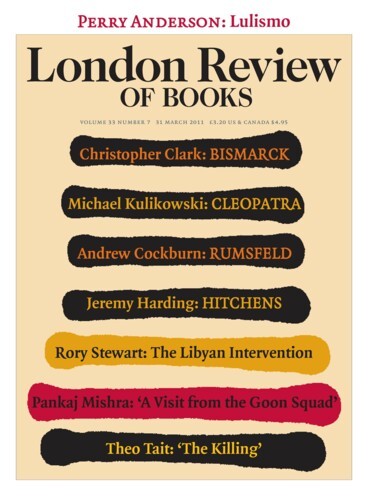They were all foreigners: ‘SPQR’
Michael Kulikowski, 7 January 2016
Neil Tennant described his run of hits between ‘It’s a Sin’ and ‘Heart’ as the Pet Shop Boys’ imperial phase, when they owned the charts and charmed the critics by setting Che Guevara and Debussy to a disco beat. We are now in Mary Beard’s imperial phase, and she’s entered it with wit and charm and insight rather than the intellectual...





